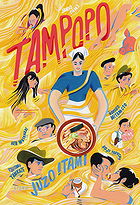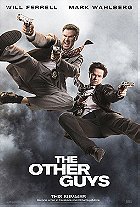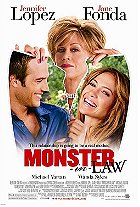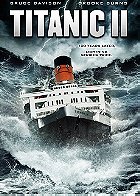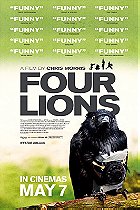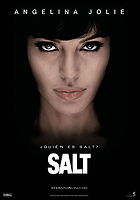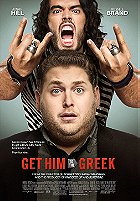Filmmaker Oliver Stone's name has become synonymous with the word "controversial". Love or hate his movies, though, there is no denying the allure to his projects, not to mention the superior craftsmanship and the keen sense of storytelling that ensures each film he creates is worth seeing. 1987's Wall Street is among Stone's most famous works of the '80s, and it endures so strongly in the minds of movie-goers primarily due to the legendary "Greed is good" speech that's delivered by Michael Douglas as Gordon Gekko in the film. It's easy to understand why people have held onto this specific sound-bite for so long, as it symbolised the American financial community during the '80s and remains relevant more than 20 years later. In addition to this speech, Wall Street benefits from razor-sharp dialogue, top-notch performances, and an interesting story.

The protagonist here is young, low-level stockbroker Bud Fox (Sheen) who works at a trading firm but aspires to make it to the big time and be more than an invisible office drone. When Bud happens upon some insider information gleaned through a conversation with his father, he passes it onto his powerful idol Gordon Gekko (Douglas) during a once-in-a-lifetime meeting. Impressed, Gekko accepts Bud into his private circle, and Bud finds himself in the fast lane with the possibility of real wealth and power dangling in front of him. He begins to see Gekko's world from the inside, and decides to plunge ahead despite knowing that Gekko has built his empire on illegal insider trading and scare tactics. Interestingly, Bud Fox is not unlike the role Charlie Sheen played in Oliver Stone's Platoon; a determined, fresh-faced, inexperienced, unsure individual who's sucked into a devastating world that wrestles his soul and torments his spirit.
Wall Street is a classic tale of evil manipulating good. In a nutshell, it's a dramatised fictional tale of an era where money was king and everyone was scrambling to get to the top; a time where morals, hard work, integrity, honesty and any semblance of right and wrong was often surrendered to the power of wealth and the appeal of stature. It's not that Wall Street scolds the system - it functions as more of a criticism of the people who would manipulate the system and cheat their way to the top. Oliver Stone's script revels in the unforgiving examination of the high life and the look at the countless hours of work and manipulation behind it. This is balanced, however, by the picture's final act in which the choice between right and wrong is shown to have severe and lasting consequences on both sides of the ledger.

In preparation for Wall Street, Oliver Stone did everything he could to ensure he got all of the details right. Due to growing up around his father's Wall Street office, he was already knowledgeable about the world of buying and selling stock. He additionally conducted lots of research through spending time with brokers from all areas of the business. During shooting, Stone elected to film in real office buildings rather than sets, and he hired former Salomon Brothers partner Kenneth Lipper as technical advisor. The final product is an accurate, penetrating portrayal of Wall Street. Unfortunately, this also means that it's easy to feel lost if you are unfamiliar with the language and rules of the business. Wall Street is a thoroughly verbose picture, and the pacing is consequently uneven, leading to dead spots. Nevertheless, Stone's handling of the material is fairly top-notch, resulting in a technically sound and thematically engaging picture aimed at audiences who have the patience to appreciate fine craftsmanship such as this.
Additionally, what Wall Street lacks in flow (it is somewhat stiff at times) it makes up for in the performances courtesy of the exemplary ensemble cast. Gekko, as portrayed by Michael Douglas in the defining role of his acting career, is a brilliant antagonist. He is the very embodiment of amorality; a man who acquires wealth because it's how he keeps score, not because he needs it. He is driven to win at all costs, and his charisma shields his unethical disposition. Gekko even quotes Sun Tzu, and has made The Art of War his mantra by which he navigates life and the financial markets. Douglas is expectedly brilliant in the part; his performance is a powerhouse of controlled aggression and vindictive cunning, and Douglas executed the role with absolute conviction. As a result of his performance, Douglas earned the Best Actor Oscar. However, despite Douglas walking away with all the accolades, Gekko is more of a supporting character - Wall Street is the story of Bud Fox. Fortunately, Charlie Sheen performed admirably here.

The supporting cast, meanwhile, is comprised of a cornucopia of top-notch actors. There's Martin Sheen who's brilliant in the role of Bud's father (thus, Martin Sheen was playing opposite his real son), John C. McGinley who's equally impressive as Bud's co-worker, and an excellent Terence Stamp as Gekko's rival. Darryl Hannah is the only weak spot - she suffocates the film with an uninspired, dreary performance. Ironically, everyone told Stone to fire Hannah from the movie, but he didn't listen and subsequently regretted his decision.
The most remarkable accomplishment of Wall Street was that it achieved theatrical distribution at an ideal time. Stone wrote the screenplay in 1986, and filming occurred from late '86 to early '87. Meanwhile, there was a massive run-up of the stock market. By the time the stock market crashed and Black Monday arrived, the film was in the can and awaiting its December delivery. While the mechanics of stock trading depicted in Wall Street are outdated, the essence of what goes on is the same, and the frantic nature of trading is no less fascinating. Although best known for the "Greed is good" speech or as another feather in Olive Stone's cap, Wall Street is an absorbing movie about the plight of the soul in the unforgiving atmosphere of big business and bigger money. Eventually Oliver Stone produced a sequel in the form of 2010's Wall Street: Money Never Sleeps.
8.2/10
 Login
Login
 Home
Home 183 Lists
183 Lists 1671 Reviews
1671 Reviews Collections
Collections
 0 comments,
0 comments, 



